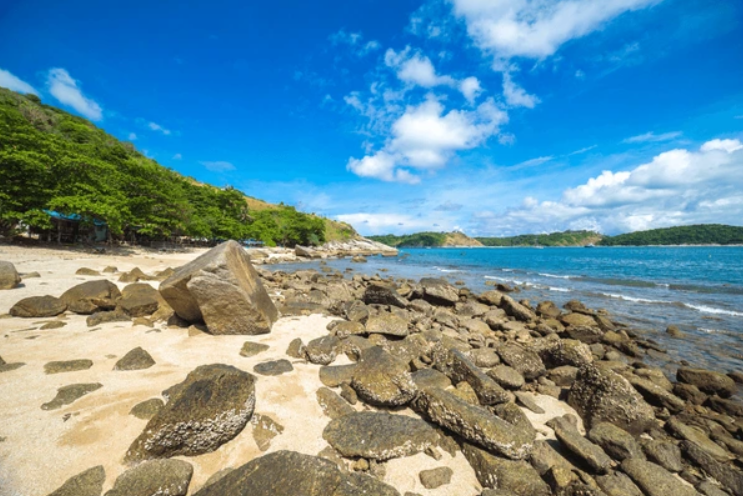When considering property ownership in Thailand, one must navigate through various legal frameworks and understand the implications of leasehold and freehold ownership. Both options come with their distinct set of advantages and limitations, and making an informed decision is crucial for investors and homebuyers alike.
In this comprehensive guide, we will delve into the differences between leasehold and freehold property ownership in Thailand, shedding light on the legal aspects, ownership rights, and considerations for prospective buyers
Leasehold Property Ownership
Legal Framework
In Thailand, leasehold ownership is a common arrangement, especially for foreigners who are restricted from owning land outright. The legal framework for leasehold properties is governed by the Thai land laws Thailand Land Code Act. Under this system, individuals or entities can lease land for a specified duration, typically ranging from 30 to 90 years.
Ownership Rights
Leasehold grants the lessee the right to use and occupy the property for the agreed-upon lease period. However, it's essential to note that while the lessee has control over the property during the lease term, they do not own the land. Ownership of the land remains with the lessor.
Renewal and Extension
Leasehold agreements often include provisions for renewal or extension. However, the specifics can vary, and it is imperative for lessees to thoroughly understand the terms of renewal and the associated conditions.
Transferability
Leasehold properties are generally transferable with certain restrictions. Transferring a leasehold property usually involves obtaining consent from the lessor and adhering to any stipulated conditions in the lease agreement.
Considerations for Foreigners
Foreigners interested in acquiring property in Thailand often opt for leasehold due to the restrictions on foreign ownership of land. Leasehold provides a legal avenue for foreign individuals and entities to enjoy long-term use of a property without violating Thai property laws.
Freehold Property Ownership
Legal Framework
Freehold ownership, also known as "Chanote" title, grants the owner full rights to both the land and any structures on it. While Thai nationals can own land outright, foreign ownership of freehold land is subject to certain restrictions.
Ownership Rights
The key distinction of freehold ownership is the absolute control and ownership of the land. The owner has the right to use, sell, lease, or bequeath the property without the need for lease agreements.
Foreign Ownership Restrictions
Foreigners looking to acquire freehold land in Thailand need to navigate legal restrictions. One common approach is establishing a Thai company, in which foreigners can own a majority of shares, to hold the land. However, recent legal changes have tightened regulations, and prospective buyers should seek legal advice to ensure compliance.
Inheritance and Succession
Freehold ownership allows for straightforward inheritance and succession planning. The owner can pass the property to heirs through a will, simplifying the transfer of assets.
Investment Potential
Freehold properties often have higher investment potential due to the unrestricted ownership rights. The ability to fully control and develop the land without lease limitations can be attractive for investors seeking long-term gains.
Comparative Analysis
Long-term Investment vs. Short-term Usage
Leasehold properties are suitable for individuals seeking short to medium-term usage or investment. On the other hand, freehold properties offer a more secure long-term investment with the potential for significant appreciation.
Flexibility vs. Ownership Control
Leasehold provides flexibility, allowing lessees to enjoy the property without the commitment of ownership. Freehold, however, provides absolute control, offering owners the freedom to use, develop, or transfer the property as they see fit.
Legal Compliance and Due Diligence
Regardless of the chosen ownership type, due diligence is paramount. Buyers should seek legal advice, conduct thorough title searches, and understand all terms and conditions before finalizing any property transaction.
Leasehold or Freehold in Thailand: What's the Best Option for Foreigners?

The choice between leasehold and freehold for a foreigner in Thailand depends on various factors, including the individual's preferences, long-term goals, and the specific circumstances of the property. Here are some considerations to help guide the decision-making process:
Leasehold Property
Advantages
- Legal Avenue for Foreigners: Leasehold is a legal avenue for foreigners to enjoy property in Thailand, especially when direct freehold ownership is restricted.
- Flexibility: Leasehold offers flexibility, making it suitable for those who may not have a long-term commitment to the property or are considering it for shorter-term usage or investment.
Considerations
- Lease Duration: Pay attention to the lease duration. While leasehold properties may have renewable terms, the specifics can vary, and it's essential to understand the conditions for renewal or extension.
- Transferability: While leasehold properties are generally transferable, the process may involve obtaining consent from the lessor and adherence to specific conditions.
Freehold Property
Advantages
- Absolute Ownership: Freehold properties provide the foreign owner with absolute and indefinite ownership rights over both the land and structures. This can be appealing for those seeking complete control.
- Long-term Investment: Freehold ownership is well-suited for individuals looking for a long-term investment with the potential for substantial appreciation over time.
Considerations
- Ownership Restrictions: While Thai nationals can own land outright, foreigners face restrictions. To acquire freehold land, foreigners may need to explore legal structures like setting up a Thai company where they can own a majority of shares.
Key Factors to Consider
- Investment Horizon: If the goal is a long-term investment or permanent residence, freehold might be more suitable. For short to medium-term plans or if the property is primarily for vacation or rental purposes, leasehold could be a practical choice.
- Legal and Financial Advice: Consult with legal and financial professionals well-versed in Thai property laws. They can provide guidance on compliance, ownership structures, and the implications of both options.
- Location and Property Type: Consider the location and type of property. Some areas may have more stringent restrictions on foreign ownership, and certain property types may be more readily available in either freehold or leasehold options.
- Transfer and Resale Considerations: If potential resale or transfer of the property is a consideration, understand the ease and implications of such transactions for both freehold and leasehold properties.
- Lease Terms and Conditions: Carefully review the terms and conditions of the leasehold agreement. Understand renewal options, restrictions, and any obligations imposed by the lessor.
In conclusion, there is no one-size-fits-all answer, and the best option for a foreigner between leasehold and freehold depends on individual preferences and specific circumstances. Thorough research, legal advice, and a clear understanding of personal objectives will contribute to making an informed decision aligned with the individual's goals in Thailand's real estate market.
Contact Us
For sales and villa information: Email: sales@pavaragroup.com
For legal-related enquiries, such as villa ownership, due diligence report:
Mr. Ittinant Suwanjutha, Partner, IAS Advisory Co.,Ltd.
Email: ittinant@ias-law.com Mobile: 0612387447

















